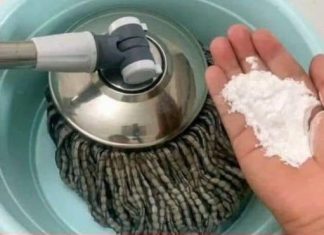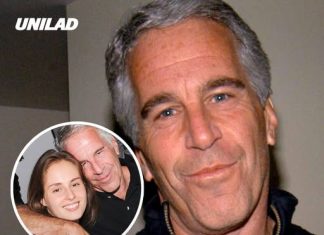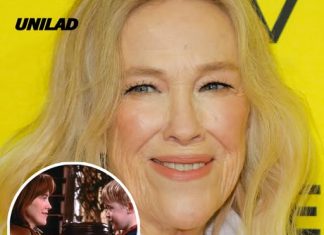The sound of moving boxes scraping across the hardwood floor signaled a permanent shift in our two-bedroom house, and it utterly transformed my world at age seven. My mother, Linda, was radiantly happy as she oversaw the movers bringing in the furnishings of Arnold — her new husband and my soon-to-be stepfather.
“Cindy, come and meet your new brother and sister!” Mom’s voice sounded cheerful, but I could sense the underlying tension. I left my bedroom, my sanctuary among stuffed animals, and found two children who looked just as unsure about this new arrangement as I was. Three-year-old Brandon clung to his father’s leg, his wide brown eyes full of caution. Five-year-old Joselyn stood beside them, her arms crossed and a suspicious look on her face.
“Hi,” I whispered, uncertain what to say to my suddenly-acquired siblings.
Arnold encouraged softly: “Say hello, kids. We’re all going to be a family now.”
Arnold, age thirty-five, seemed to be a stable partner for my mother. Tall, mild-mannered, wire-rimmed glasses, slightly graying hair, worked as an accountant and had been single two years since his divorce. My mom, thirty-two, had raised me alone since my father died in a car crash when I was two; I had no memories of him, but she always made sure I knew how much he loved me. She worked long, demanding shifts as a nurse.
When Arnold made a statement at our first full dinner as a family, I was completely unprepared. “We need to have a serious discussion about everyone’s safety,” he said, setting his fork down and looking around the table with an expression that tied my stomach in knots.
Mom asked: “What sort of safety discussion?”
“The children have a few medical issues that require extreme vigilance about what we bring into the house,” Arnold replied. “Both Brandon and Joselyn suffer from severe food allergies that could be life-threatening if we are not constantly careful.”
I watched Mom’s expression change from curiosity to concern. As a nurse she understood allergies better than most.
Mom asked: “What exactly are the allergies?”
Arnold pulled a folded paper from his wallet — a list that looked official, complete with a typed signature. He explained: “Brandon is allergic to all dairy products—milk, cheese, yogurt, butter; any exposure could cause anaphylactic shock. Joselyn is allergic to all seafood and shellfish, which can also be fatal.”
He continued: “And both of them are severely allergic to all tree nuts and peanuts. Even the slightest exposure to peanuts could trigger a severe reaction.”
Mom began jotting notes on a napkin instinctively. “Do they carry EpiPens? Have they been hospitalized?”
Arnold said: “Yes — we have EpiPens in the car and I’ll get new ones for the house. Joselyn was hospitalized at age three after eating a cookie with peanut butter. Brandon had a reaction to cheese at eighteen months. We’ve been extremely careful ever since.”
I was still digesting the information when Arnold dropped the statement that would define my childhood: “The safest method is to make the house completely allergen-free,” he declared. “Cross-contamination is a genuine risk with allergies this severe. We cannot have any of these foods in our home — under any circumstances.”
“At all?” I asked. “What about my snacks?”
Arnold softened his expression: “I know this is a huge adjustment, Cindy. But we all need to cooperate to keep Brandon and Joselyn safe. A single crumb of the wrong food could send them to the hospital.”
I turned to my mom, hoping she’d object or propose some compromise. Surely she would find a way for me to keep a few of my favorite foods while still protecting my new stepsiblings.
“Of course,” Mom said immediately. “We’ll do whatever it takes to make sure everyone is safe.”
“But what about peanut butter?” I asked quietly. “I have peanut butter and jelly sandwiches for lunch every day.”
“We’ll find something even better for you,” Mom assured, squeezing my hand gently. “There are safe substitutes that taste just as good.”
I wanted to argue, but the solemn faces told me this was non-negotiable. These were the new rules, and I was expected to follow them without complaint.
“We’ll go grocery shopping tomorrow and stock up on safe foods,” Arnold said. “There are specialty stores for families with allergies. We’ll make sure you have plenty of options you like.”
That evening, lying in bed listening to my new family settle, I tried to convince myself this wouldn’t be so bad. Maybe the allergy-safe foods would be good. Maybe I’d find new favorites even better than my peanut butter sandwiches. I didn’t know then that I was about to spend the next nine years eating foods I truly disliked, or that the medical conditions shaping our lifestyle were entirely made up.

The Only Safe Diner
By my eighth birthday, I had accepted that our “new normal” was permanent. The birthday dinner on that wet October Saturday should have been something I looked forward to—after all, birthdays meant going out to eat and a brief escape from the stricthouse rules.
“Where would you like to celebrate your birthday dinner?” Mom asked ahead of time, and I felt a surge of excitement. “Could we go to Tony’s Pizza?” I asked hopefully. Tony’s was a family spot with red-checked tablecloths and the smell of garlic and cheese that always made my mouth water when we drove past.
Mom and Arnold exchanged a look; I saw Arnold shake his head slightly.
“Sweetheart,” Mom said gently, “pizza places aren’t safe for Brandon and Joselyn. All that dairy and the risk of cross-contamination.”
“What about the Chinese restaurant on Main Street?” I tried. “They have steamed rice and vegetables that should be safe.”
“Chinese restaurants often use peanut oil and can’t guarantee shellfish safety,” Arnold replied. “We need a place that specializes in allergen-free dining.”
They told me about the Green Garden Café. “It’s ideal for families like ours,” Arnold explained, showing me a flyer. “The owner opened the restaurant because her own daughter has severe allergies. Everything is free of major allergens.”
The brochure disappointed me: pictures of wilted salads, dry veggie burgers, and desserts that looked like compressed sawdust.
“Doesn’t it look wonderful?” Mom asked. “They even have a birthday ritual for kids with allergies.”
That ritual meant we had to bring our own “celebration loaf” — a heavy, flavorless, agave‐sweetened, gluten-free, dairy-free, nut-free cake substitute that Arnold had special-ordered from a health-food bakery.
The Green Garden Café was exactly as it seemed and worse. The atmosphere felt sterile—fluorescent lights, the smell of steamed vegetables hanging in the air like damp fog. The other diners looked as unhappy as I felt, picking at meals that seemed designed more to sustain life than to bring joy.
“Happy birthday, sweetie!” the waitress chirped. “I hear you’re turning eight!”
“Yes,” I replied quietly, looking around the room and realizing that this might be my birthday dinner forever.
We ordered: veggie burgers of some pressed grain and vegetables, sweet potato fries that somehow managed to be both soggy and dry, and salads with dressing that tasted like liquid cardboard.
“This is delicious,” Mom declared, though I noticed she mostly moved the food around rather than eating it.
Arnold agreed: “Much superior to typical restaurant fare,” he said as he chewed with the expression of someone trying to convince themselves.
Brandon and Joselyn ate without protest—they were used to it. To me, it felt like suppression.
We got out the celebration loaf. The restaurant staff gathered to sing “Happy Birthday,” and there I was trying to smile and pretend I was enjoying it, feeling like I might cry instead.
The cake—if you could call it that—had the texture of damp sand and a vaguely sweet but mostly strange flavor, like a memory of a birthday cake made only from vegetables and wishful thinking.
“Make a wish!” Mom urged. I shut my eyes, and my wish was simple: for a normal birthday dinner with real food.
When I blew out the candles, everyone applauded. I said “thank you” through clenched teeth, feeling the same old resentment rise up inside me. That night in bed I understood something: this was going to be my life. Every birthday, every outing, every family meal would be at Green Garden Café, eating food that felt like punishment for something I hadn’t done.
Over the next years, the Green Garden Café became as familiar as our own kitchen. I knew every limited menu item, every peculiar scent, every forced smile from staff who served the same disappointed families week after week.
“Why can’t we try somewhere else?” I asked before my ninth birthday. “Just once?”
“Because Green Garden Café is safe,” Arnold replied. “Why take an unnecessary risk when we have a place that works?”
“But maybe other places could work too,” I insisted. “Maybe we could call ahead and ask about their allergy procedures.”
Mom shook her head. “Cindy, we’ve discussed this. Green Garden Café specializes in allergen-free food. Other places might say they can handle allergies, but we can’t be sure they fully grasp how serious Brandon and Joselyn’s conditions are.”
By ten, I stopped asking about alternate restaurants. By eleven, I stopped pretending I enjoyed those dinners. By twelve, I dreaded my birthday entirely, knowing it meant another evening of forcing down tasteless food while pretending to be grateful.
“You seem unhappy about your birthday,” Mom observed when I turned thirteen. “What’s wrong, sweetie?”
I looked around the room—beige walls, the smell of steamed cauliflower—and tried to find the words for six years of growing frustration.
“I just wish…” I started, then stopped. What was the point? I already learned that hoping for the impossible was pointless.
“You wish what?” Mom gently asked.
“I wish I could have a birthday dinner I actually enjoyed. Just once.”
Arnold leaned in, concerned. “Cindy, I understand it’s not what you grew up with, but it is very healthy and nutritious. Maybe if you approached it with a more positive mindset…”
“I’ve been approaching it with a positive mindset for six years,” I interrupted. “I’ve tried to like it. I’ve tried to be appreciative. But I hate the food here, and I hate that we never go anywhere else, and I hate that my birthday always feels like a punishment instead of a celebration.”
Silence filled the table; other diners glanced our way.
“Cindy,” Mom said quietly, “that’s unfair. We’re doing our best to keep everyone safe while celebrating your special day.”
“What about keeping me happy?” I asked. “What about celebrating in a way that actually makes me feel valued?”
“Your happiness is important,” Arnold asserted. “But it’s not more important than Brandon and Joselyn’s safety. Their allergies could kill them, Cindy. Your preference is simply a preference.”
And there it was—the hierarchy that defined our family: my stepsiblings’ medical needs (which I had no reason to doubt) were life-or-death and superseded everything. My emotional needs were mere preferences, easily dismissed for the “greater good.”
I finished the dinner in silence, ate the celebration loaf that tasted like disappointment, and made polite talk about school while inside I wanted to scream. That night I made a decision: I would stop fighting.
If my family wouldn’t change, if my needs would always come second to a medical story I had no real say in, I would accept it and try to find joy elsewhere. I threw myself into school activities, joined the debate team, wrote for the school newspaper, and spent every spare moment at friends’ houses where I could eat normal food and remember what genuine enjoyment felt like.
At fourteen, Mom complained, “You’re never home anymore.”
“I am home,” I told her. “I’m just swamped with school stuff.”
“It feels like you’re avoiding us,” she said. “Is something wrong?”
I looked at her—my mom, who raised me and gave me love before Arnold’s arrival—and felt a mix of affection and deep-seated resentment.
“Nothing’s wrong,” I lied. “I’m just growing up.”
But something was wrong. I was living my teenage years feeling like an outsider in my own home, eating food I loathed, accepting that my needs came second to the medical demands of children who weren’t even my biological siblings. What I didn’t know then was that those medical demands were fabricated—and the years of my sacrifice built on a lie that was about to unravel dramatically.
An Alarming Discovery
By the time I turned fifteen, I thought I had achieved a quiet acceptance of our family’s dietary restrictions. I no longer asked about different restaurants. I no longer complained about dinner at Green Garden Café. I no longer expected my birthday dinners to be anything but endurance tests.
Then a high school biology assignment changed everything.
“For your final project, you will research a medical condition and present your findings,” Mrs. Patterson announced. “You may select any condition that interests you, but your research must include current literature, treatment protocols, and real-world impact on patients and families.”
Most students groaned, but I sensed something important: here was a chance to learn something that was daily life for me.
“I want to research food allergies,” I told Mrs. Patterson. “My brother and sister have severe allergies and I think it would help to understand them better.”
“That is an excellent choice,” she said. “Food allergies are increasingly common and there is a lot of research on their management.”
I dove into research with more zeal than I had in years. I wanted to understand the conditions that had dictated my entire childhood and why our household’s restrictions were so extreme.
What I found in the medical literature did not align with the story I’d been told. According to studies, while food allergies can be life-threatening, the management protocols I read were far more nuanced than our sweeping restrictions. For instance: many families with severely allergic children can allow allergens in the home under strict protocols. Some allergic individuals safely live in households where certain allergens are present but contained. I read that excessive dietary restrictions beyond medical necessity can lead to social isolation, family discord, and unnecessary reduction in life quality.
I started to ask questions: had my parents consulted allergists? Had they considered alternatives to a total household ban? Were there treatments that allowed more flexibility?
The more I researched, the more confused I became. Severe allergies are typically diagnosed early and after clear reaction episodes. But I couldn’t recall any real stories of Brandon or Joselyn having allergic reactions. I had never seen the EpiPens, never seen emergency action plans posted, never heard about protocols if a reaction occurred. Their behavior didn’t match what I read: they showed no anxiety, no vigilance, no questioning of ingredients. They seemed casual.
I asked Maya: “Have you ever seen Brandon or Joselyn use their EpiPens?”
“No,” she replied. “Do they carry them? I’ve never noticed.”
I realized I’d never seen them in the house either. If the conditions were as severe as claimed, their casual behavior didn’t add up.
Then I found an article about Munchausen syndrome by proxy — where a caregiver fabricates or induces medical conditions. The article described a case of a mother claiming her children had severe allergies, imposing extreme dietary restrictions on the whole family; investigations revealed the children had no allergies at all.
I stared at the screen, feeling nauseous. Could it be possible? Could Arnold have lied about his children’s allergies? I tried to dismiss the thought, but once it took root, I couldn’t stop reviewing all the inconsistencies: the lack of real medical evidence, the kids’ non-anxious behavior, the drastic household restrictions, the father’s immediate insistence on total ban. I finished my project, but my mind was consumed with questions. If I was wrong and the allergies were real, accusing them could cause major family conflict. If I was right, my entire childhood had been built on deception.
I decided to watch more closely, to collect evidence.
Observing the Lie
Over the next month I became a detective in my own home, tracking Brandon and Joselyn’s behavior around food for signs that might confirm or deny the allergies. What I found made me doubt everything.
First, their casual behavior at school. Brandon, allegedly allergic to all dairy, sat next to a classmate who ate string cheese daily—he showed no concern and even used the same pencil sharpener as the dairy-eater, with zero worry about contamination. Joselyn, reportedly allergic to seafood, was completely at ease in the cafeteria when fish sticks were on the menu—sat at the table with others eating fish, chatting normally, no fear of airborne exposure or contamination.
Neither child ever asked about ingredients when offered snacks. One day I asked Joselyn: “Don’t you need to check if those cookies have nuts?”
She paused, then asked Mrs. Rodriguez: “Do these have nuts?” after I prompted. But before I prompted, she was ready to eat without any question.
Second, I found no allergy management tools in our home. No visible EpiPens, no emergency action posters, no training for the family on identifying reactions. I looked everywhere—kitchen, bathroom, Arnold’s car—but if there were EpiPens they were hidden extremely well, or non-existent. For a family allegedly dealing with life-threatening allergies, our preparation was shockingly absent.
Third, their behavior differed when Arnold was around vs. when he was not. With him nearby, the kids would quietly avoid talking about disallowed foods. Without him, they slipped up. One day I heard Brandon say, “I wish we could have pizza sometime.” I reminded him, “You can’t because of your dairy allergy.” He looked confused, then said, “I meant… I wish they made good dairy-free pizza.” Sounds like someone avoiding the truth.
Joselyn: I overheard her tell a friend about fish and chips and say, “I wish I could have had some.” When she noticed me, she changed topic. Her tone wasn’t of someone carefully avoiding allergens—more like someone who just wasn’t allowed the food.
Fourth, Arnold’s contradictions. Parents of children with severe allergies typically become meticulous about reading labels, vigilance, etc. But Arnold rarely checked labels. I observed him eating forbidden foods when away from home. One day I visited his office and saw him eating a turkey and cheese sandwich—full dairy. When I knocked, he quickly threw the sandwich in the trash and claimed he had only eaten a salad. After that, I paid attention to his eating habits. It suggested he didn’t really believe in the severity of the allergies—if he truly believed trace exposure was dangerous, he wouldn’t take the risk.
By my sixteenth birthday I was nearly certain the allergies were fabricated. But I still didn’t know how to act on it without destroying my whole family.
The Audacious Plan
My best friend Maya proposed a plan that would expose the truth:
“What if I bring you some real food for your birthday dinner? Something you actually like, hidden in a gift bag or something?”
“Maya, I can’t,” I replied. “If Brandon or Joselyn had a reaction—”
“But what if they don’t?” Maya interrupted. “What if they’re not really allergic? What if this has been fake for years?”
I stared at her, hearing the words I had been afraid to say. “What if you’re wrong?” I asked. “What if they are allergic and something terrible happens?”
“Then we’ll call 911 immediately,” Maya said firmly. “But Cindy, if you’re right—if you’ve been living a lie for nine years—you deserve to know the truth.”
I thought of all the birthdays I’d endured, all the food I was denied, all the times I felt guilty for wanting something else. I thought of my research and the inconsistencies.
“What would you bring?” I asked.
Maya grinned: “What’s your favorite food that you haven’t had?”
“Shrimp,” I said without hesitation. “I used to love shrimp cocktail before this all started.”
“Perfect,” she said. “I’ll bring you a small container of shrimp. Something you can eat quickly, discreetly. If nothing happens to Brandon or Joselyn, we’ll know something is very wrong with their allergies.”
My heart pounded. “Maya, this is crazy. If they’re really allergic—”
“We’ll be ready. But Cindy, you’ve been watching them for months now. Have you seen any signs they’re actually allergic?”
I admitted: no, I hadn’t. Not really. Though I’d noticed many oddities.
“Okay,” I said finally. “But just a tiny amount. And we must have a contingency—call 911 if needed.”
“Deal,” Maya agreed. “And Cindy? Happy early birthday. You deserve to enjoy your birthday dinner for once.”

Birthday Revelation
My sixteenth birthday arrived on a crisp clear Saturday in October—the kind of day that should feel celebratory. Instead, I woke with knots in my stomach, knowing this dinner would either be like all the others or the turning point.
“Happy birthday, sweetheart!” Mom said, bringing coffee and a bright smile. “Sixteen! I can’t believe it.”
“Thanks, Mom,” I replied. My mind raced over the plan Maya and I had.
“We’ll leave for the restaurant at six,” Mom said. “Maya’s meeting us there, right?”
“Right,” I confirmed, though my voice sounded hollow even to me.
The day dragged. I tried to distract myself, but I couldn’t stop thinking of the shrimp in the gift bag. Part of me hoped Maya would change her mind, that I could just endure another predictable dinner safely. But the larger part of me needed the truth. After nine years of denying my food preferences, I needed to know if it was necessary or if I’d been living a lie.
At five-thirty we got into Arnold’s car and drove to our usual restaurant, Green Garden Café. “Sixteen is such a special birthday,” Arnold said as we entered the familiar space. “I hope this year is everything you want it to be, Cindy.”
I managed a weak smile—if my suspicion was correct, this evening would indeed be everything I wanted, and everything Arnold feared.
Maya arrived carrying the gift bag, her nervous but excited grin. “Happy birthday, Cindy!” she said, hugging me a little longer than normal. “I brought something special.”
We ordered our usual meals — the same depressing food I’d been forcing down for nine years — and made small talk while waiting. Maya kept glancing at me; the gift bag sat like a ticking time bomb at my feet.
When Maya excused herself to the bathroom, I knew what she was doing. She returned and slipped something into the bag at my feet while the rest of the family was distracted.
“Just a little something extra for the birthday girl,” she whispered.
My heart pounded so loud I’m sure everyone heard it. The smell hit me immediately: fresh shrimp. That clean briny scent I hadn’t smelled in nine years. It smelled like childhood memories and forbidden pleasure.
Joselyn came over and sniffed the air: “I smell something weird,” she said. “Like… fishy.”
I panicked. This was it — the moment her allergic reaction would appear. “I don’t smell anything,” I lied, but Joselyn walked away toward the bag.
While Maya and I chatted distractedly, Joselyn came behind my chair and pulled out the shrimp container. Before anyone saw, she walked quickly toward the back of the restaurant clutching it.
“Time for the birthday song!” Mom announced, pulling out the celebration loaf. “Everyone gather!”
Arnold looked around confused. “Where’s Joselyn?”
“She must’ve gone to the bathroom,” Brandon said. But five minutes passed, then ten. They all got up to look. We found Joselyn crouched behind a dumpster outside the restaurant, shrimp container empty, cocktail sauce smudged on her chin — devouring food she’d been told was deadly.
“JOSELYN!” Arnold shouted in panic. “What are you doing?”
Mom gasped. “Call 911! She’s having an allergic reaction!”
But Joselyn looked up—no hives, no swelling, no breathing trouble. She looked annoyed. “What?” she said. “I’m sick of pretending. Dad, just tell them we’re not allergic to anything.”
Silence hit me like a physical blow. Nine years. Nine years of my life built on a lie.
Mom said: “That’s not true.”
Arnold couldn’t look at any of us. His face white, hands shaking.
“Did you lie to me about the allergies?” Mom asked. Arnold nodded.
“I wanted my kids to feel special,” he whispered. “After the divorce, they felt unwanted. I thought if they had special needs you’d bond with them more. I thought it would bring our family together.”
“You thought lying would bring us together?” Mom said, voice escalating. “You thought forcing my daughter to live under fake medical restrictions for nine years would bring us together?”
“I never meant for it to go this far,” he said.
I looked at my mother, expecting her to defend me, to express outrage for what I had endured. Instead she stood there, tears streaming.
“How could you do this to us?” she whispered.
“How could you let him?” I said, my voice cracked. “You’re my mother. You were supposed to protect me. You chose his lies over my happiness for nine years.”
Mom turned to me: “Cindy, I didn’t know—”
“You chose him,” I said. “Every time I asked for something different, every time I said I hated the food, every time I begged to try somewhere else—you chose him and his children over me. You made me feel guilty for wanting normal food. You made me feel selfish for wanting to enjoy my birthday.”
Mom said weakly: “I thought I was protecting Brandon and Joselyn.”
“You were protecting Arnold’s lie,” I replied. “You chose your husband over your daughter. And I’ll never forgive you for that.”
The ride home was silent but for Mom’s tears, Arnold gripping the wheel, Brandon and Joselyn looking confused. I went straight to my room and slammed the door. Three weeks later, Mom filed for divorce. Arnold moved out with the kids. We never saw them again.
The Fallout
The divorce moved quickly. Mom’s lawyer said Arnold’s deception regarding the children’s medical conditions—documented in fake reports—constituted fraud, child-endangerment, even medical abuse.
Mom decided not to press charges. “I just want him gone,” she said. “I want to rebuild our relationship.”
But “moving on” proved harder than either of us thought. The realization that the allergies were fake didn’t just destroy the family—it destroyed my ability to trust Mom’s judgment and the family dynamics I grew up with.
“I’m so sorry, Cindy,” Mom said repeatedly in the weeks after Arnold’s departure. “I had no idea he was lying. I thought I was protecting them. I thought I was being a good stepmother.”
“You were being a good stepmom,” I replied. “But you weren’t being a good mother to me.”
“I never meant to make you feel less important,” she insisted. “I love you more than anything.”
“Then why didn’t you fight for me?” I asked. “Why didn’t you ever tell Arnold that my happiness mattered too? Why didn’t you look for solutions that worked for everyone instead of just accepting his restrictions?”
Mom struggled to answer. I could see the guilt. But understanding didn’t erase the years of feeling invisible.
“What can I do to make this right?” she asked.
“I don’t know,” I answered honestly. “I don’t know if you can.”
A Difficult Readjustment
One of the hardest parts after all of it was rewiring my relationship with food. After nine years of restricted eating, I found I had almost a phobic reaction to the foods I’d been denied.
“We can eat anywhere you want now,” Mom said the week after Arnold left. “Pizza, Chinese food, ice cream—whatever you’ve been craving.”
But when we went to Tony’s Pizza — the one I’d asked about for nine years — I couldn’t enjoy it. The cheese tasted too rich, too intense for taste buds trained on bland substitutes. The salt and grease made me feel sick. Even the loud, lively atmosphere overwhelmed me after years in the sterile quiet of Green Garden Café.
“This isn’t what I expected,” I told Mom as I poked at my slice.
“Maybe it just takes time to adjust,” she said gently.
But it wasn’t just adjustment. The foods I never had had turned into myths in my mind. No actual meal could live up to that fantasy. More importantly, eating had come to be tied to family conflict and disappointment—so even being in a restaurant made me anxious.
“I think I need to talk to someone,” I told Mom after several failed ‘normal’ meals. “Someone who isn’t you or anyone in our family.”
Mom found me a therapist specializing in adolescent and family trauma. Dr. Sarah Williams — calm, kind-eyed — seemed to understand right away what I’d been through.
“What you experienced was a form of psychological abuse,” she said in an early session. “Even if Arnold didn’t intend malicious harm, the impact on you was real. You were forced to give up your preferences and needs based on fabricated medical conditions. That’s deception and manipulation, and it leaves scars.”
“My mom says she didn’t know,” I told her. “She says if she’d known the allergies were fake, she’d have done things differently.”
“How does that make you feel?” she asked.
“Angry,” I admitted. “Because even if the allergies had been real, my mom never fought for me. She never tried to find solutions that worked for both me and the kids. She just accepted that my needs mattered less.”
“That’s very insightful,” Dr. Williams said. “The fact that the allergies were fake makes the deception more dramatic, but the underlying dynamic—your needs always being secondary—would have been problematic even if everything else had been real.”
Working with Dr. Williams helped me understand that my anger wasn’t just about the food or the fake allergies. It was about feeling invisible, about learning my happiness was expendable when it conflicted with someone else’s stated need.
“I spent nine years feeling guilty for wanting things normal teenagers want,” I told her. “I felt selfish for wanting to enjoy my birthday dinners. I felt ungrateful for not appreciating how much everyone was sacrificing for Brandon and Joselyn’s safety.”
“And now you know those feelings were manufactured by a lie,” she observed.
“But they were also enabled by my mom’s choices,” I added. “Even if the allergies had been real, she could have fought harder to include me—she didn’t. She let my happiness take a back seat.”
Dr. Williams helped me figure out how to express my feelings without attacking my mother. We worked on setting boundaries so I could rebuild our relationship while protecting my own emotional wellbeing.
“Your mother made serious mistakes,” Dr. Williams said. “Mistakes that had real consequences for you. But she made them out of love and a desire to create a harmonious family. The question now is: can you find a way to forgive her while still holding her accountable for how things were?”
I didn’t have a clear answer yet. As my junior year progressed, Mom and I co-existed—but our relationship felt strained and cautious. She tried too hard to make up for the past, offering me freedoms I’d never had before. I was still struggling with resentment and trust.
“I’ve been looking at colleges,” I told her one evening. “I want to apply to schools far away from here.”
Mom’s face fell, but she nodded. “If that’s what you want, I’ll support you. Where are you thinking?”
“California, maybe. Or the East Coast. Somewhere I can start over.”
“Start over from what?” Mom asked gently.
“From feeling like I can’t trust my own family. From being the daughter who always felt less important than everyone else.”
“You were never less important,” Mom said, tears in her eyes.
“Then why did it feel that way for nine years?” I asked.
Mom didn’t have an answer—maybe she never will.
As my eighteenth birthday approached, I realized I had a choice: carry anger and resentment forever, letting them define my relationship with Mom, or find a way to forgive while maintaining boundaries that protected me. The decision would shape not only my remaining time at home, but the adult I wanted to become.

















